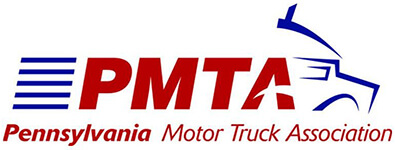Uber Takes on Lawsuit Abuse in Pennsylvania
Uber is alleging that Simon & Simon’s operation went beyond aggressive lawyering—it functioned as a coordinated enterprise built to defraud insurers and the courts.
In a major move to expose fraud in the legal system, Uber Technologies, Inc. has filed a civil RICO lawsuit in the U.S. District Court for the Eastern District of Pennsylvania against Simon & Simon, P.C., a prominent Philadelphia personal injury law firm, and a network of medical providers.
The 66-page complaint accuses attorney Marc Simon and his firm of orchestrating a long-running scheme to inflate insurance claims by fabricating or exaggerating medical diagnoses and billing records—turning otherwise minor fender-benders into million-dollar lawsuits.
What Is a RICO Lawsuit?
“RICO” stands for the Racketeer Influenced and Corrupt Organizations Act, a federal law originally designed to combat organized crime. Civil RICO allows companies to pursue damages when they can show a pattern of fraud or racketeering activity conducted through an enterprise—in this case, an alleged network of law firms and medical providers working together to file false claims.
RICO cases are rare and serious; they require strong evidence of an ongoing scheme rather than isolated misconduct. By invoking this statute, Uber is alleging that Simon & Simon’s operation went beyond aggressive lawyering—it functioned as a coordinated enterprise built to defraud insurers and the courts.
The Alleged Scheme
Uber’s filing describes how the defendants funneled thousands of claimants, often with minor or no actual injuries, to hand-picked medical providers who were willing to produce cookie-cutter medical reports diagnosing long-term or permanent injuries.
The complaint cites:
- Fabricated or exaggerated diagnoses intended to justify high-value settlements.
- Inflated medical records and bills to make claims appear catastrophic.
- A pattern of dismissing Uber from dozens of cases after the company sought discovery into one provider’s records—an apparent attempt to avoid scrutiny.
A federal judge previously noted a striking pattern in the firm’s cases:
“I have yet to see a single case involving the Simon office where any plaintiff actually pursued the recommended care. I therefore view these reports as litigation documents, bearing little relationship to real-world medical care.”
Why It Matters to Trucking
Although the case was filed by Uber, the issues it raises mirror what many trucking and logistics companies face every day. Pennsylvania carriers are all too familiar with the impact of fraudulent claims, inflated settlements, and “nuclear verdicts” that have little to do with real damages.
Every fabricated injury and inflated lawsuit drives up insurance premiums—not just for one company, but for the entire transportation sector. As Uber’s complaint states, these schemes “increase insurance rates and transportation costs for the public at large,” forcing honest businesses and consumers to shoulder the burden.
Because Uber is required to maintain at least $500,000 in insurance coverage whenever a driver is en route to or performing a trip, it often becomes a prime target for opportunistic litigation. The same dynamic applies to trucking fleets, which carry high policy limits and can appear to be “deep pockets” to aggressive trial attorneys.
For trucking companies, that means higher costs, fewer insurers willing to write coverage, and reduced ability to reinvest in safety, training, or equipment. In other words, lawsuit abuse doesn’t just hurt big companies—it hits every business that relies on transportation to move goods and keep the economy running.
Part of a National Effort
This Pennsylvania filing marks Uber’s fourth civil RICO lawsuit this year, following similar actions in New York, Miami, and Los Angeles. Each case targets what Uber calls a systemic pattern of fraud by coordinated legal and medical enterprises exploiting the injury-claim system.
Uber’s approach signals a growing pushback against litigation abuse—one that aligns closely with PMTA’s advocacy to restore balance and fairness to Pennsylvania’s civil justice system.
PMTA agrees that lawsuit abuse and unchecked litigation costs are among the most serious threats to the trucking industry. They divert resources from safety investments, threaten small carriers, and drive up the price of everything transported on a truck.
Uber’s action in Pennsylvania sends a powerful message: when the legal system is exploited for profit, everyone pays the price. Holding bad actors accountable is essential to protect fair competition, public safety, and the affordability of transportation across the Commonwealth.
